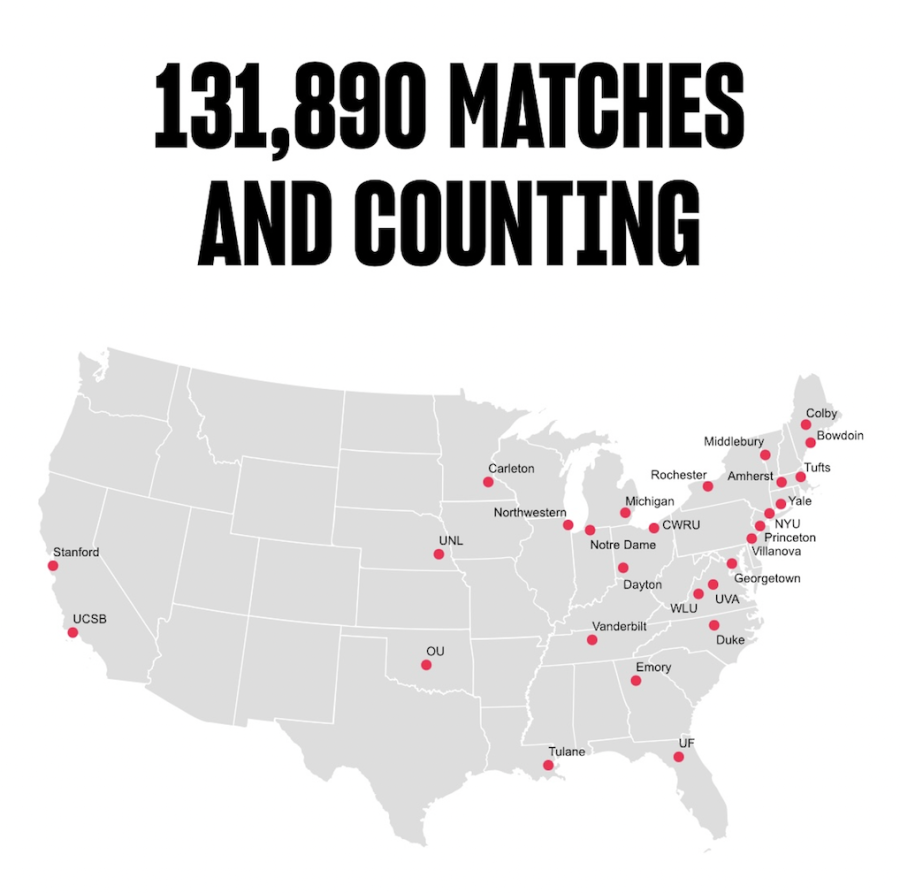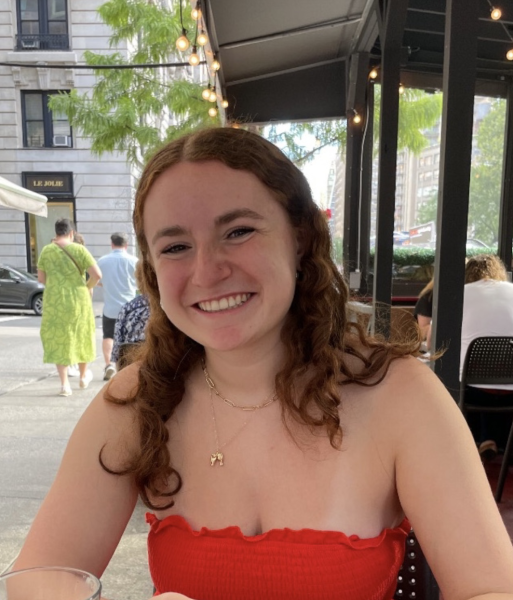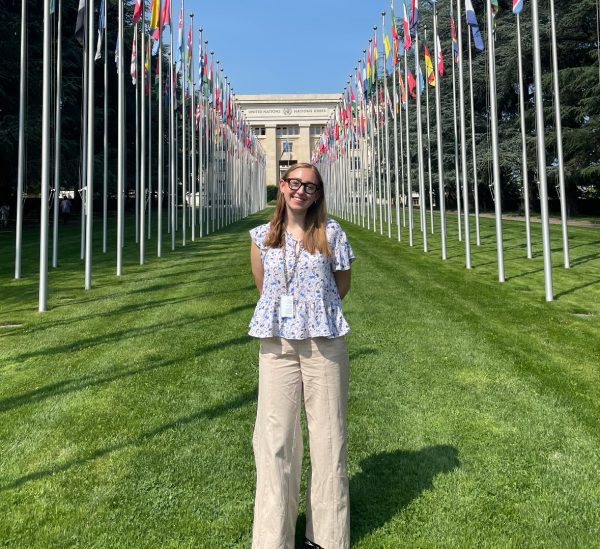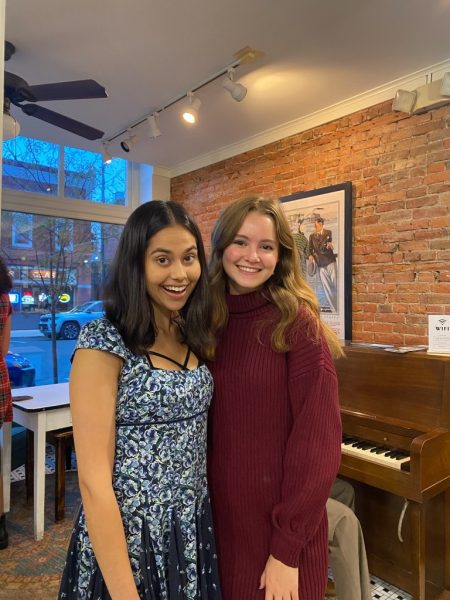Unveiling the Marriage Pact Management and Algorithm
On Monday, October 10, the Marriage Pact management team at Colgate University addressed 1,218 students by email: “Tonight’s the night…,” read the subject line.
It was indeed a night of great anticipation: the collegiate matchmaking platform would pair the students who took a questionnaire with their most romantically compatible campus counterpart. Could it be a crush, an old flame, a mortal enemy or perhaps a total stranger?
Marriage Pact was born over half a decade ago from a senior thesis in psychology and mathematics at Stanford University. It has since expanded to 78 college campuses.
The platform is rather brazen in its endorsements: Marriage Pact’s website states: “Let’s just put it out there: college is the best place to find The One. And you won’t be here forever… Do you really want to look up from your cubicle when you’re forty [years old] to find yourself alone? There’s no time to lose. Leave it up to our algorithm and find your perfect backup plan today.”
That said, a questionnaire is sent out as part of a “large-scale matching event that provides students with their optimal marital back-up plans via algorithm,” says the Marriage Pact website. Participants answer personality-based questions on a scale of 1-7 that assesses general likes to personal non-negotiables . This year, after survey submission, students could see how their responses stacked up against other respondents — an email from Marriage Pact management presented an individualized infographic to everyone — detailing which percentile they placed in for various characteristics: from “being an empath” to “ambition.” These data points sustained campus-wide excitement until the initials of each participant’s match dropped a few days later, with the eventual reveal of the match’s full name.
At Colgate University, one student oversees the process alongside three Stanford students who help mostly on the front-end doing two weeks worth of prep work and launching for specific campuses.
The Colgate Maroon-News sat down with this student to speak about the program, although they have since passed the baton on to a younger student. Their identity will remain anonymous, as to not compromise the integrity of the Marriage Pact system. During the campus-wide quarantine in the Fall of 2020, they happened upon the concept through a scroll on Tik-Tok.
“I literally saw Marriage Pact being done at other schools, and I was like, ‘Oh, this is really cool.’ So, I reached out to the creators of Marriage Pact at Stanford [University] … and I was like, ‘Can we bring this to my school?’ And [they] [were] like, ‘Most definitely,’ and then we launched it the next semester,” said the past manager of Colgate Marriage Pact.
From there, it has become a near semesterly tradition for students to participate in the survey — whether there’s a successful pairing or not, Marriage Pact always makes for some good gossip, and keeps campus dialogue abuzz. Most importantly, it can serve as an outlet in rather isolating times.
“I thought it would just be a fun tradition. Each [semester], it’s a good way for [first-years] to kind of get to know people and for seniors to cross their fingers that they get their one library or class crush. [It’s] just like another method for people to reach out to people because I noticed that with [the coronavirus pandemic], sometimes this campus can be alienating. So it’s just a way for people to make a friend or make something more,” said the former Colgate Marriage Pact manager.
Even though some students speculate that those running the algorithm here have some sort of hand in the process due to instances of already established couples matching with one another, the Marriage Pact past manager assured this is not the case. This precision can only be traced back to science.
“We can’t change [the algorithm or outcomes] to ensure that we get who we want to be matched with. And that way it kind of just, like, takes the emotion out of everything and just lets science do it,” said the past manager of Marriage Pact at Colgate.
A Stanford University graduate comprises the brains behind the algorithm. While the questions in the survey vary by each semester’s release, the founding principles remain — Marriage Pact maintains a goal of finding compatible matches, rather than creating pairings based merely on shared interests or characteristics.
“[The graduate] pretty much created this algorithm [as part of his thesis] and then received funding from Stanford and they’ve been running it for, I think, five or six years now. It’s now, like, a corporation — people actually work there and they make money […] So it started off just as a way to get a grade at Stanford, and had a much larger impact,” said the past manager of Marriage Pact at Colgate.
That impact is surely palpable on Colgate’s campus— take it from numerous newfound couples.
“I have heard a lot of feedback. My [direct messages] are often full on the Marriage Pact [instagram] account. There’s been some successful ones. I know people who had taken the Marriage Pact and they’re in a long-term relationship and they ended up getting, like, a 99.7% match with the person that they’re in the relationship with. I have heard quite a handful of stories of people who reached out to their marriage pact and ended up hooking up or dating them. I would say I know at least 10 concrete couples that have met through Marriage Pact,” said the past manager of Marriage Pact at Colgate.
However, matches don’t always end up working out as intended.
“I got to meet someone new [as part of the Marriage Pact process] and find out who they were. It was not romantic, but [still] fun to meet someone new and know a new face on campus. We now say ‘hi’ and catch up when we see each other out. While the Marriage Pact wasn’t necessarily romantic for me, it was mostly a great opportunity to meet new people on campus. This school is so small, but with the Marriage Pact, you have the opportunity to meet people in different corners of campus which is kinda cool,” senior Lauren Wakeman remarked.
Curiously enough, Colgate has one of the highest participation rates in the program nationwide. Nearly two-thirds of the campus population decided to take the questionnaire— a real rarity. The Marriage Pact developers consequently turned their attention to Colgate.
They thought that Colgate would be the perfect place to pilot their new app: Soulmate Radar, which resolves to “end all could-have-beens,” or so says its App Store description. For anyone able to verify a Colgate email address, they can answer questions on this app, and then simply wait for someone potentially compatible to physically pass them. Once that happens, both parties will receive a notification and a time-sensitive invitation to introduce conversation.
“[The Marriage Pact developers] decided that our school would be one of the best schools to try it out because we have over 50% participation in the Marriage Pact […] And for being such a small school, they thought that we would have more overlap and people would utilize the app more, but instead it just became kind of a platform for underclassmen. And nobody really did anything with the matches that they were getting. They would see the initials, but then they would never initiate a conversation,” said the past manager of Marriage Pact at Colgate.
Compounding the app’s failure to launch was concern about security.
“I think it’s a lot for an app to track your every movement so that you get an alert for when you know a potential match is coming your way on campus,” senior Erin Flannery said.
There were another slew of hesitations surrounding the app’s marketed benefits.
“The reason I don’t see the app working is because people are already hesitant to directly approach people they’re attracted to in person, partially because of the social media and hookup culture here. People are very afraid of seeming too forward or too ‘serious,’ and I don’t think that further removing people from reality through an app is going to fix that or make anyone feel more comfortable meeting people,” senior Eva Wiener said.
Perhaps the success of Marriage Pact can be best assessed in years down the road when it’s time to search for marital partner “back-ups.” For now, Marriage Pact, at the very least, has provided the University with some light-hearted fun and in some cases, unexpected meaningful connection.












